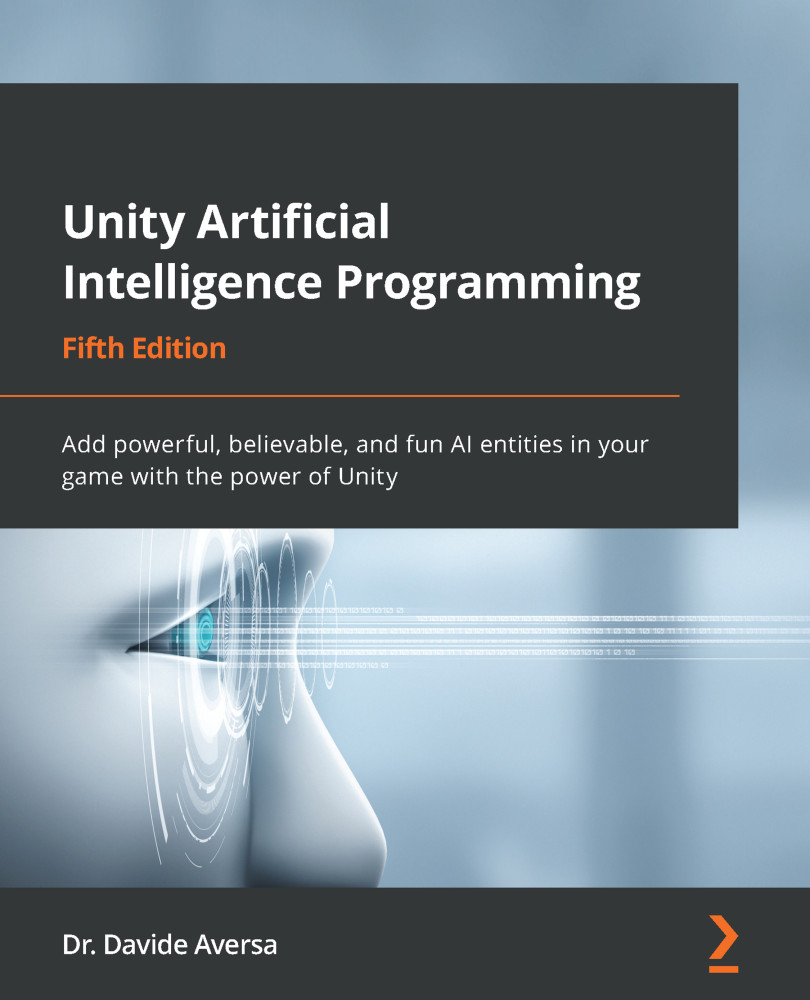Introducing randomness in Unity
Game designers and developers use randomness in game AI to make a game and its characters more realistic by altering the outcomes of characters' decisions.
Let's take an example of a typical soccer game. One of the rules of a soccer game is to award a direct free kick to a team if one opposing team player commits a foul while trying to retake control of the ball. However, instead of giving a free kick whenever that foul happens, the game developer can apply a probability to reward only 98% of all the fouls with a direct free kick.
After all, in reality, referees make mistakes sometimes. As a result of this simple change, the player usually gets a direct free kick as expected. Still, when that remaining two percent happens, the game provides more emotional feedback to both teams (assuming that you are playing against another human, one player will be happy while the other will complain with the virtual referee).
Of course, randomness...

































































